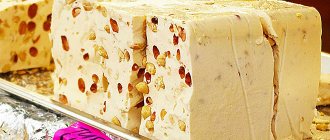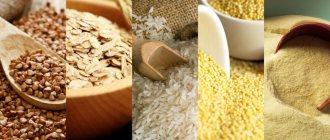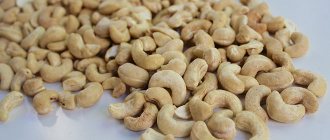One of the most important periods for a baby and the woman nursing him is lactation. The baby's development largely depends on what kind of milk his mother feeds him, so at this time the diet should be balanced and complete.
Photo: depositphotos.com. Author: belchonock.
It must be remembered that dried fruits are a wonderful alternative to fresh fruits, and also a rich source of vitamins and microelements. An additional advantage is that dried fruits are available all year round, so mothers have the opportunity to enrich their diet with useful substances in any season, be it spring, autumn or winter. At the same time, the vitamin deficiency is replenished in the children’s body.
We can say that the concerns of some mothers about the safety of eating dried fruits during lactation are unfounded. So make compotes from them, prepare uzvars and drink to your health!
What dried fruits can you eat while breastfeeding?
If you are looking for a healthy alternative to refined sugar, dried fruits are an ideal choice for breastfeeding. They are well suited for home baking and go well with unheated desserts.
But what kind of dried fruits can you eat while breastfeeding? After all, some of them can negatively affect the baby’s digestion.
Dates
It is a rich source of fiber. Additionally, dates help lower LDL cholesterol levels. They also contain iron, manganese and vitamin B6 - substances that are often deficient after childbirth and during breastfeeding.
Figs
Figs are good for the heart and circulatory system in general. It is recommended when the body is weakened, which is typical during the period of feeding the baby. Figs contain a large amount of calcium and fiber, making them suitable for normalizing digestion. In folk medicine it is used as a preventive measure for colon cancer. Don't be afraid of the white coating on the figs - in most cases it's natural sugar.
Experts from the Journal of Human Lactation, who are looking into whether and what dried fruits can be consumed while breastfeeding, recommend figs and dates to increase breast milk production.
Apricots
These fruits contain large amounts of vitamin A and iron. Choose darker organic apricots because the nice orange color comes from the presence of a preservative (E220).
Apples
This is one of the traditional types of natural sweets in the Central European region. They have been consumed for hundreds of years to improve digestion. Scientific research explains this property quite simply. Dried apples contain a balanced combination of B vitamins, polyphenols, potassium, boron, phosphorus and magnesium. These substances also prevent cancer and Alzheimer's disease.
If you don’t know what dried fruits a nursing mother can eat, give preference to apples or pears - you won’t go wrong. Choose fruits with skins that contain more vitamin C.
Raisin
This is an excellent source of potassium and manganese, absolutely safe for babies, so it can be included in the diet of a nursing mother from the first postpartum weeks.
A pineapple
The perfect sweet for everyone. Dried pineapple is also suitable for nursing women who have problems with the urinary system. Being a good source of vitamin C, it is suitable for consumption during the cold season.
It also contains fiber, which has a beneficial effect on the intestines.
Opinion of breastfeeding specialists
What sweets can a nursing mother afford to include in her diet? There are products that cannot adversely affect the growth and development of the baby:
- homemade marshmallows;
- marmalade without harmful dyes and flavor stabilizers;
- yogurt and low-fat cottage cheese;
- candied fruits and other dried fruits;
- baked apples;
- paste.
For nursing mothers, the following foods are not allowed to be included in their diet:
- carbonated drinks;
- any type of chocolate;
- cakes that use rich cream.
They pose a serious danger to the newborn's body. Even a small portion can lead to serious food poisoning. Such products often cause allergies. It manifests itself in the form of an extensive rash and red spots that spread throughout the baby's body. Most often they spread over the tummy and face.
Condensed milk is a dessert for a nursing mother, which until recently was allowed to be eaten during lactation. Today, production technology has changed, so some women are strictly prohibited from eating it, even in limited quantities. You can only eat the product that is produced in full compliance with GOST. Condensed milk is allowed only in limited quantities. It is recommended to add it to tea or dilute it with regular boiled water. In this case, you get a tasty and healthy drink for the body.
What to give up
Have you become a mother? If so, you'll be looking at dozens of hours of breastfeeding, changing clothes, and comforting a colicky baby in the coming weeks. You can prevent or reduce your baby's digestive problems by adjusting your diet accordingly. Restrictions also apply to natural products, in particular dried fruits.
In the first 4-5 months after birth, it is advisable to minimize the consumption of dried fruits that cause bloating, especially if the child has a problem with colic. As a rule, what causes flatulence in the mother also adversely affects the baby’s intestines. Therefore, first of all, watch your digestion.
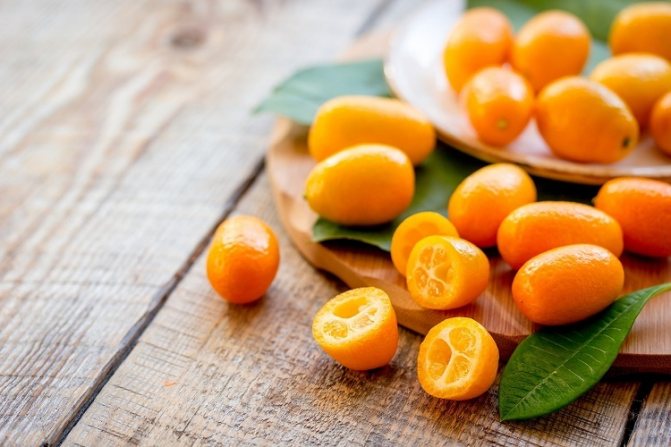
In addition to flatulence, when consuming inappropriate dried fruits, another complication arises - urticaria, through which the child’s body reacts to some “aggressive” substances. Risky dried fruits include:
- citrus;
- kiwi;
- tropical fruits (except pineapple);
- plums;
- strawberries;
- some berries (currants, gooseberries, blackberries, cranberries).
Therefore, when choosing which dried fruits you can use to make compote that is not harmful to the baby, use permitted fruits. Intestinal problems can also arise when eating heat-treated “unfavorable” fruits.
What dried fruits can you eat in the first month after giving birth?
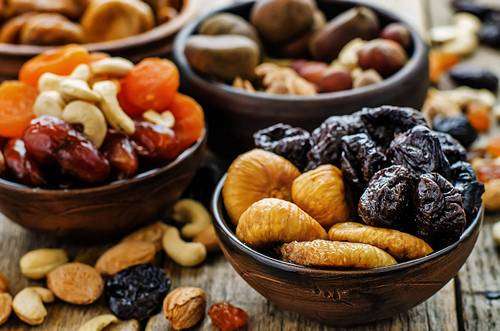
Dried and dried fruits can be included in a nursing mother's diet in moderation. With unlimited consumption of dried fruits, the following negative reactions may occur:
- Allergy. It is impossible to predict how the baby’s body will react to a particular product. In children prone to allergies, skin rashes may appear even after their mother eats dried apples. Other babies tolerate even citrus fruits well.
- Digestive disorder. Some dried fruits, such as prunes and figs, have a laxative effect. They cause intestinal bloating and stool upset not only in the mother, but also in the baby.
In the first month of breastfeeding, it is advisable to completely avoid dried fruits so as not to provoke intestinal colic in the child. During this period, rose hips and dried apples are considered the safest. They can be used from the first days of the baby’s life, at the stage of lactation. Decoctions prepared from these fruits will increase the amount of breast milk and enrich it with vitamin C.
In the second month of breastfeeding, you can include dates in your diet as dried fruits. They rarely cause any negative reactions. Dried apricots and raisins during this period can only be consumed in the form of compotes and decoctions. It is also advisable to abstain from prunes until the baby is 8 weeks old. Gradually, you can add figs, dried pears and other fruits to the menu. As a rule, all children calmly tolerate dried fruits by the age of three months.
Benefits and harms
One dried fruit contains about the same amount of nutrients as fresh fruit, but in a more compact form. But it contains 3.5 times more fiber, vitamins and minerals compared to fresh fruits. One serving of dried fruit can provide a greater percentage of the daily recommended intake of many vitamins and minerals, particularly folic acid. Only vitamin C is deficient, the content of which decreases significantly during drying.
Dried fruits are an excellent source of antioxidants, especially polyphenols. These substances help improve blood flow, improve digestion, and reduce cell damage from free radicals, reducing the risk of a number of diseases.
Research shows that breastfeeding women who include dried fruits in their diet return to their previous physical shape faster, while consuming more nutrients, compared to women who refuse natural treats.
But there are also disadvantages. The dried fruit contains many natural sugars. Because it loses water during the drying process, the sugar and calories are concentrated into a much smaller package. For this reason, dried fruits contain large amounts of energy and sugar, including glucose and fructose. Content of natural sugar in certain types of product:
- raisins – 59%;
- dates – 64-66%;
- plums – 38%;
- apricots – 53%;
- figs – 48%.
About 22-51% of this sugar is fructose. Consuming large amounts of fructose can have negative health effects, including an increased risk of weight gain, type 2 diabetes, and heart disease. Therefore, dried fruits should be consumed in moderation - no more than a handful per day.
In view of the above, the question arises: is it possible for a nursing mother to drink dried fruit compote at all? Since only certain substances are leached into the water during cooking (some in rather limited quantities), compote is an ideal option for consuming dried fruits.
What are the benefits of dried fruits?
After evaporating the moisture from fresh fruit, a product is obtained in which nutrients and vitamins are preserved in a concentrated form.
There are more calories in dried fruits than in fresh fruits, but during lactation, when many women experience an increased need for sweets, this circumstance cannot be decisive. If you want sweets, it is better to replace sugar with fructose, which is easily digestible and is found in abundance in dried fruits.
Calorie comparison table
| Name | Calorie content in 100 g of fresh fruit, Kcal | Calorie content in 100 g of dried fruits, Kcal |
| Bananas | 89 | 245 |
| Apples | 37 | 238 |
| Dates | 271 | |
| Grape | 65 | 262 |
| Apricots | 41 | 234 |
| Rose hip | 51 | 110 |
| Cherry | 52 | 273 |
| Strawberry | 34 | 273 |
| Figs | 49 | 290 |
| Plum (prunes) | 43 | 242 |
When stored for a long time, fresh fruits lose a significant part of their nutrients. Dried fruits, on the contrary, retain most vitamins and are second only to frozen fruits. During heat treatment, dried fruits also do not lose their nutritional value, unless they are subjected to prolonged boiling.
In what form can dried fruits be taken?
Of course, dried fruits covered in chocolate and sugar are not the best option. Give preference, for example, to their combination with nuts (if you are not allergic!). You can also make compote from dried fruits - it is recommended for nursing mothers more than directly dried fruits.
To prepare it, take 120 g of pears, apricots, dates (you can use any fruit from the list of permitted ones). Place them in a sieve and rinse well with cold water. Pour in 1 liter of water. Bring to a boil, cover with a lid. Cook for about 30 minutes.
How to choose the right dried fruits
The selection of dried fruits is huge - manufacturers supply candied fruits, fruits with and without seeds, exotic fruits and the usual apples, plums and pears. For a nursing mother, choosing food becomes a responsible mission, since the composition of milk and the baby’s well-being depend on their quality.
- Do not buy fruits that are too hard or soft.
- Be sure to wash fruits in warm water. It is advisable to soak them for several hours.
- Too bright a fruit color indicates the use of chemicals. For example, bright orange dried apricots were definitely treated with potassium permanganate and sulfur. The natural color of dried apricots is quite dark. Too beautiful, oily raisins and other fruits are treated with oil.
- High-quality dried fruits look very modest - they are dark, matte and wrinkled. This is the result of natural moisture loss.
- When processed clean, the fruits do not stick together when squeezed and remain dry.
- Smell the dried fruit - a burnt smell indicates improper processing.
Features of eating chocolate during breastfeeding
Even a small piece of chocolate can have a negative effect on the baby's body. This may cause a red rash to appear on the skin, accompanied by severe itching.
Chocolate contains a large number of dyes and preservatives that are harmful to the body. For a small, growing organism, their effects can be disastrous.
You are allowed to try a small portion of the treat only after the baby is six months old. In this case, you should carefully monitor the reaction of his body.
The mother is allowed to eat certain groups of desserts only after the baby is one month old. It is important to gradually introduce new foods and carefully monitor his body’s reaction. In this case, the likelihood of a negative reaction can be minimized.
Even during the period of bearing a child, the expectant mother prepares for proper care of the baby. If a young mother has decided to breastfeed her newborn baby, then she needs to take care of following a specialized diet. The diet of a nursing woman includes the exclusion of highly allergenic, fatty, fried and spicy foods from the diet.
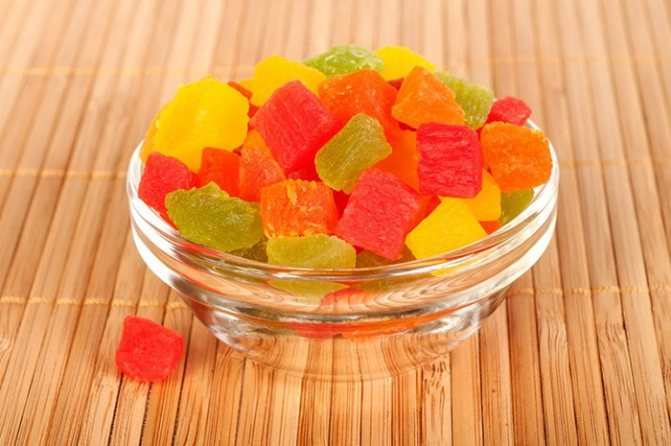
The restriction also includes fresh baked goods, as well as some types of confectionery products. For many breastfeeding women, the question of the possibility of including candied fruits in the diet during breastfeeding remains relevant.



